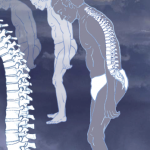ACR CONVERGENCE 2020—Held Nov. 5–9, the ACR’s first fully virtual annual meeting provided participants with a vast repository of new research related to rheumatoid arthritis (RA). To help you sort through the noise, Elizabeth (Blair) Solow, MD, an assistant professor of medicine in the Division of Rheumatic Diseases at UT Southwestern Medical Center, Dallas, offered her expertise. Her research interest is in rheumatoid arthritis and cardiovascular disease, and she participates in investigator-initiated clinical trials.
Abstract 0481—Subclinical Synovitis in Arthralgia: How Often Does It Result in Clinical Arthritis? A Longitudinal Study to Reflect on Starting Points for DMARD Treatment
Dr. Solow: The holy grail of managing autoimmunity would be preventing the disease in the first place. We know that autoantibodies may precede clinically apparent findings, and individuals who have a higher body mass index (abstract #1720), smoke or have poor dentition may be at higher risk for developing disease and a healthier lifestyle may reduce the risk of RA (abstract #1471). This study asks, if we can detect synovitis by either MRI or ultrasound, does this predict who may go on to develop overt clinically apparent RA? The short answer is, it depends. Individuals who were positive for anti-cyclic citrullinated peptide (CCP) antibodies were more likely than anti-CCP-negative patients to progress, but not all did. There are ongoing and completed clinical trials addressing the question if treating individuals with positive anti-CCP antibodies with disease-modifying anti-rheumatic drugs (DMARDs) may elongate onset or prevent the development of disease not only in RA. This study shows us we still need more biomarkers to determine who will go on to develop clinical arthritis.
Abstract 0939—Maintenance of Remission After Withdrawal of Etanercept or Methotrexate in Patients with Rheumatoid Arthritis in Sustained Remission on Combination Therapy: Results from a Randomized, Double-blind, Controlled Trial
Dr. Solow: Almost as soon as we start therapy for RA, patients will ask how long will they be on these medications and when they can start to taper. The ability to predict who will succeed with tapering immunosuppression and who needs long-term medications remains challenging. There have been studies examining strategies for tapering medications from decreasing doses until off vs. elongating the interval between doses. This study looks at which drug in combination therapy would be successful when tapering and finds etanercept monotherapy (or combination therapy) to be better at maintaining remission than methotrexate monotherapy. We need long-term data to determine the effects of how methotrexate may have affected anti-drug antibody formation and true long-term remission. This offers hope that some patients may be able to stay in remission with less medication.



